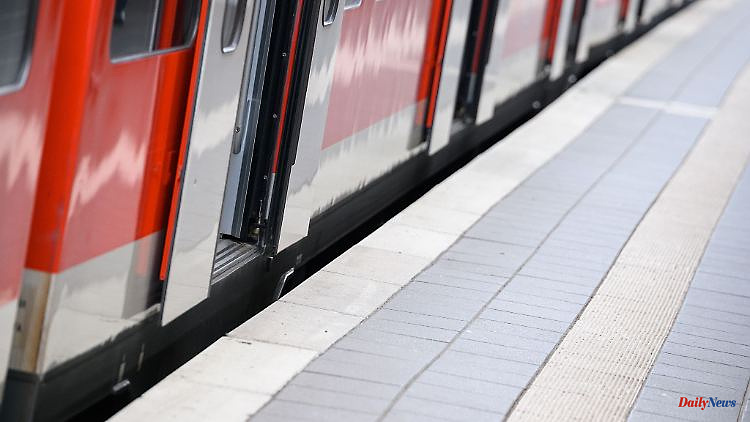Thousands of commuters know from painful experience that rail traffic in NRW is not running smoothly. One problem is the lack of drivers. There are a lot of interested parties. But only very few meet the strict quality specifications.
Düsseldorf (dpa / lnw) - 30 percent of local rail passenger transport (SPNV) in North Rhine-Westphalia are affected by incidents every day. This emerges from a response from NRW Transport Minister Oliver Krischer (Greens) to a request from AfD member of parliament Klaus Esser, which is available to the German Press Agency in Düsseldorf.
Esser spoke on Tuesday of an "imposition" that this important means of transport had such a high impairment rate. "Due to these disruptions, employees are late for work, students are not punctual for the start of classes, which results in economic damage," said the traffic policy spokesman for the AfD parliamentary group of the dpa.
He demanded that the black-green state government must react immediately to this "unacceptable situation". "Why should the citizens of our country do without reliable and flexible individual transport with their own car - especially in rural areas - and switch to an unreliable public transport carrier?" The traffic turnaround propagated by black and green does not stand up to reality.
Krischer explained that as the most populous federal state, NRW "not only has a heavily used infrastructure and the most operationally demanding regional rail transport services, but also has the highest density of competing companies in the market with eleven railway companies that provide these transport services". This means that in the interaction of several railway companies, ad hoc solutions must constantly be found.
Since 2019, the state of North Rhine-Westphalia has been supporting measures to attract applicants for the job of train driver, Krischer replied to the AfD. Last year alone, 2.7 million euros were available for the "Focus Bahn" state program. Between 300 and 400 prospective customers can now be acquired every month via a common, cross-company platform, who then have to be selected according to strict legal quality specifications.
"Since the start of the program, 378 train drivers have successfully completed their training on the measures of Focus Bahn NRW," summed up the minister. There has been a significant annual increase since 2020.
Another response from the Minister of Transport to a query from Esser recently revealed that around one in seven regional trains in NRW was unpunctual in 2021 and the "punctuality rate" determined statewide had deteriorated from 86.8 to 84.2 percent compared to 2020.
"The transport infrastructure in NRW can currently be summarized as follows: roads and bridges are dilapidated, local public transport is unreliable and rural areas in NRW are massively undersupplied when it comes to local public transport," Esser summed up. "NRW needs a traffic policy that includes all road users and not just the green bicycle lobby."












